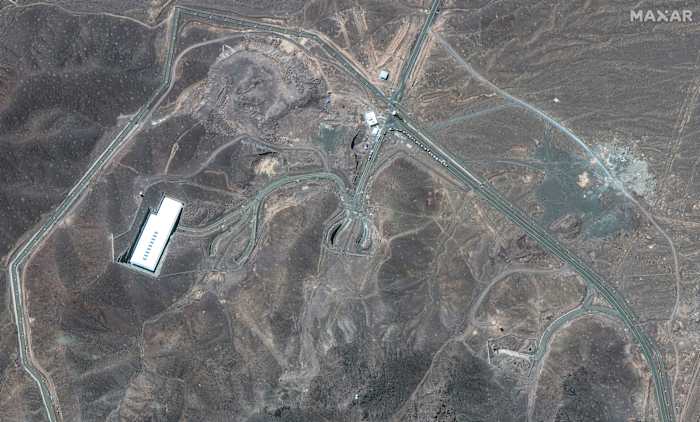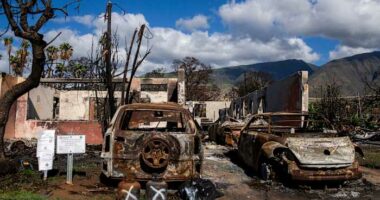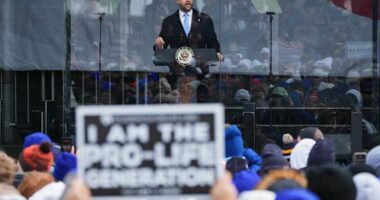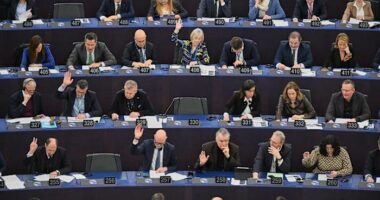Share this @internewscast.com
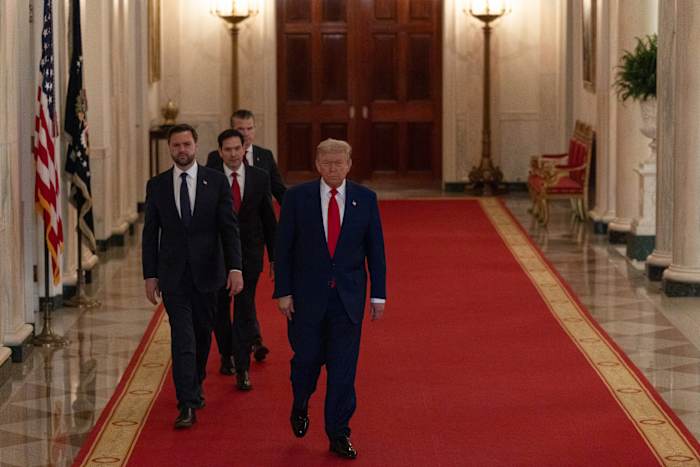
The U.S. attack on Iran has sparked concerns that Israel’s conflict with Tehran might extend into a broader regional war, prompting other nations to respond on Sunday with appeals for dialogue and cautionary statements.
President Donald Trump had initially indicated on Thursday that he would decide within a fortnight whether to intervene. However, action was taken much sooner, as Washington joined Israel’s effort with a strike early Sunday.
It remained unclear early on how much damage had been inflicted, but Iran had pledged to retaliate if the U.S. joined the Israeli assault.
There are doubts about whether Iran, in a weakened state, would choose to surrender or resist and commence attacks on U.S. interests throughout the Gulf with the help of its allies.
Here is a look at reactions from governments and officials around the world.
Lebanon
Prime Minister Nawaf Salam said that Lebanon needs to stay away from any possible regional spillover from the conflict.
“It is increasingly important for us to adhere strictly to the supreme national interest, which is the need to avoid Lebanon being … drawn into the ongoing regional confrontation in any way,” Salam said in a post on X.
United Nations
U.N. Secretary General Antonio Guterres said he was “gravely alarmed” by the use of force by the United States.
“There is a growing risk that this conflict could rapidly get out of control – with catastrophic consequences for civilians, the region, and the world,” he said in a statement on the social media platform X. “I call on Member States to de-escalate.”
“There is no military solution. The only path forward is diplomacy.”
New Zealand
New Zealand Foreign Minister Winston Peters urged “all parties to return to talks.”
He wouldn’t tell reporters Sunday whether New Zealand supported President Trump’s actions, saying they had only just happened.
The three-time foreign minister said the crisis is “the most serious I’ve ever dealt with” and that it was “critical further escalation is avoided.”
“Diplomacy will deliver a more enduring resolution than further military action,” he said.
Hamas and the Houthis
Both the Houthi rebels in Yemen and Hamas have condemned the U.S. strikes. The Houthis vowed to support Iran in its fight against “the Zionist and American aggression.”
In a statement on Sunday, the Houthi political bureau called on Muslim nations to join “the Jihad and resistance option as one front against the Zionist-American arrogance.”
Hamas and the Houthis are part of Iran’s so-called “Axis of Resistance,” the collection of pro-Iranian proxies stretching from Yemen to Lebanon that for years gave Iran considerable power across the region.
China
A flash commentary from China’s government-run media asked whether the U.S. is “repeating its Iraq mistake in Iran.”
The online piece by CGTN, the foreign-language arm of the state broadcaster, said the U.S. strikes mark a dangerous turning point.
“History has repeatedly shown that military interventions in the Middle East often produce unintended consequences, including prolonged conflicts and regional destabilization,” it said, citing the American invasion of Iraq in 2003.
It said a measured, diplomatic approach that prioritizes dialogue over military confrontation offers the best hope for stability in the Middle East.
South Korea
South Korea’s presidential office held an emergency meeting on Sunday to discuss the potential security and economic ramifications of the U.S. strikes.
National security director, Wi Sung-lac, asked officials to coordinate closely to minimize any negative impacts on South Korea, emphasizing that the top priority is ensuring the safety of the South Korean people and the continuation of their stable daily lives, according to the presidential office.
Japan
Japan’s Prime Minister Shigeru Ishiba was expected to hold a meeting with key ministers Sunday afternoon to discuss the impact of the U.S. strikes, according to Japan’s NHK television.
Japan’s largest-circulation newspaper Yomiuri is distributing an extra edition on the attack in Tokyo.
Australia
Australia, which shuttered its embassy in Tehran and evacuated staff Friday, pushed for a diplomatic end to the conflict.
“We have been clear that Iran’s nuclear and ballistic missile program has been a threat to international peace and security,” a government official said in a written statement. “We note the U.S. President’s statement that now is the time for peace.”
“The security situation in the region is highly volatile. We continue to call for de-escalation, dialogue and diplomacy.”
Copyright 2025 The Associated Press. All rights reserved. This material may not be published, broadcast, rewritten or redistributed without permission.
